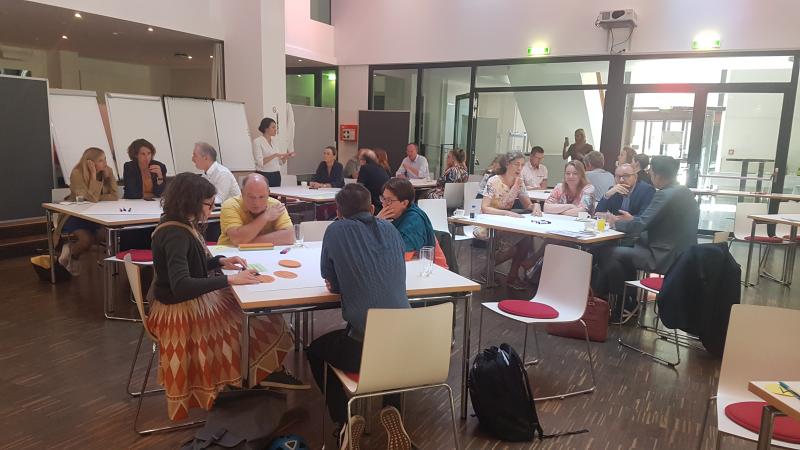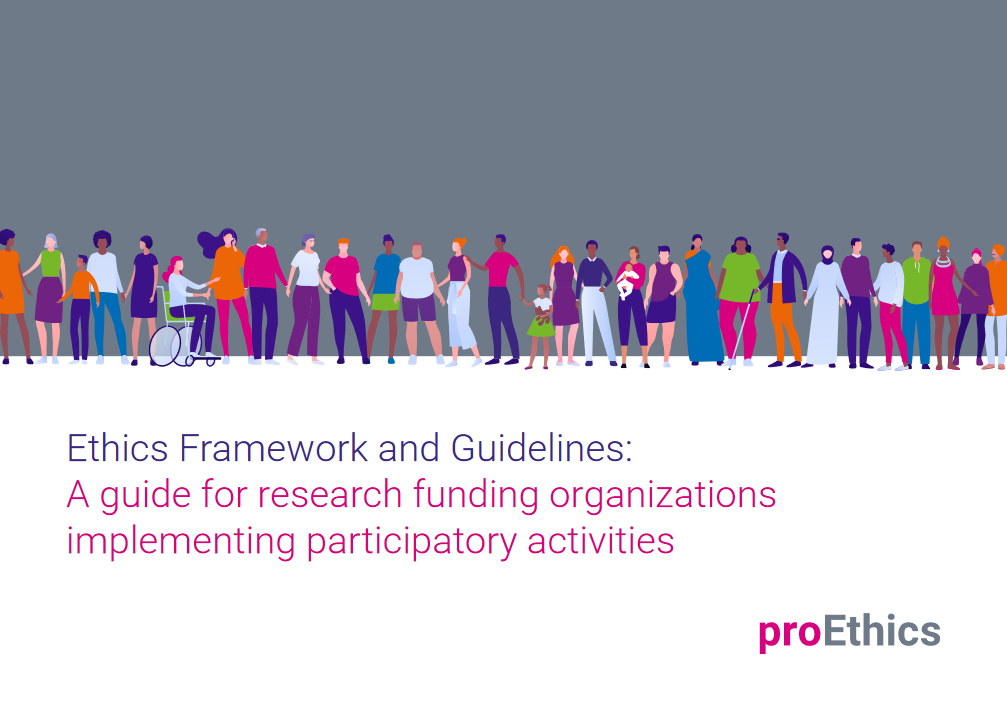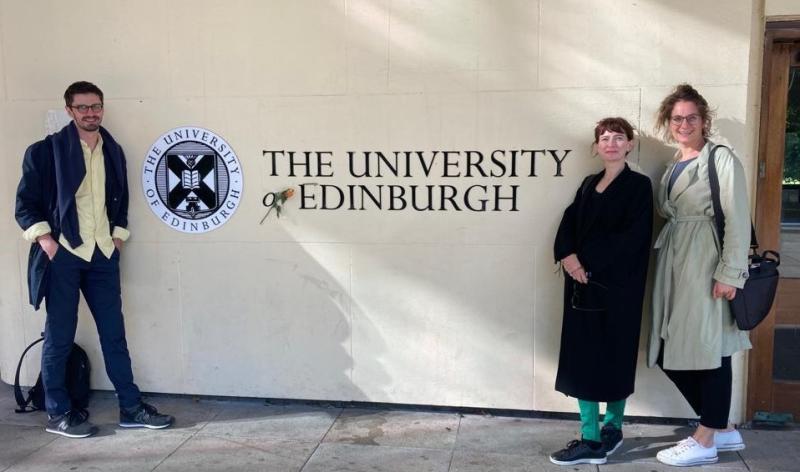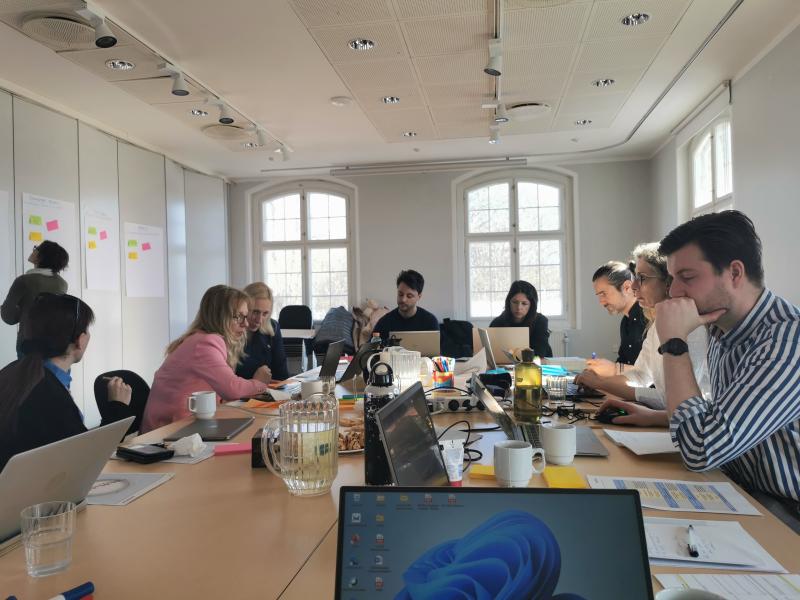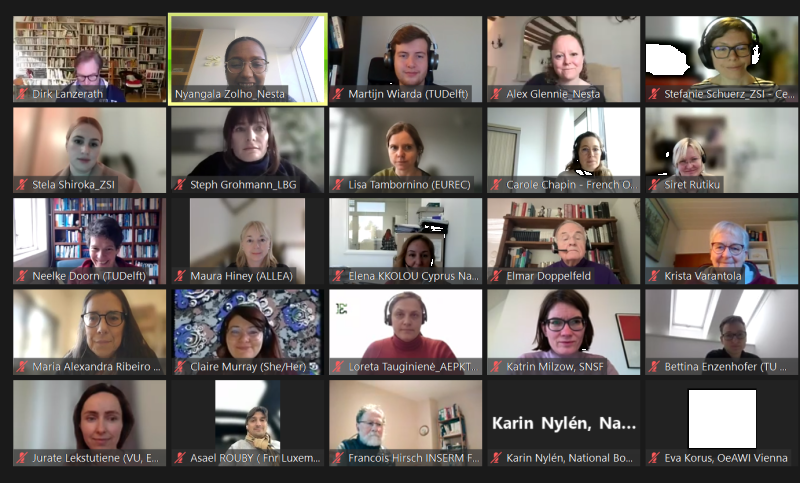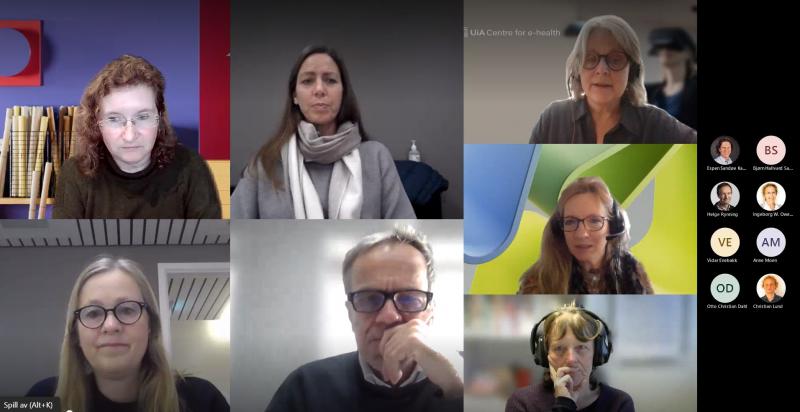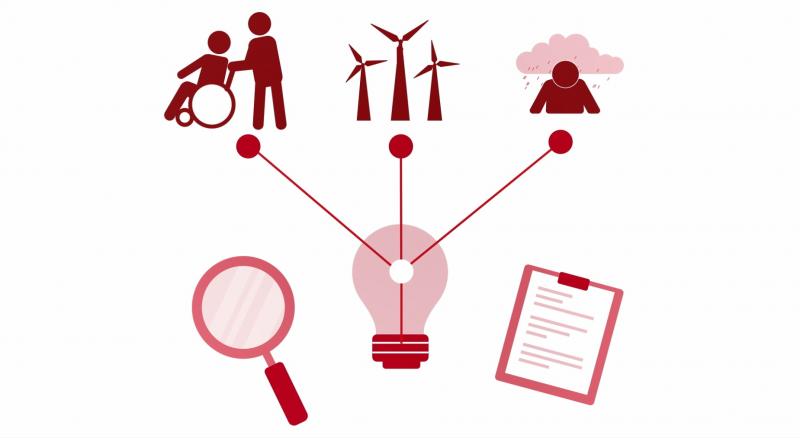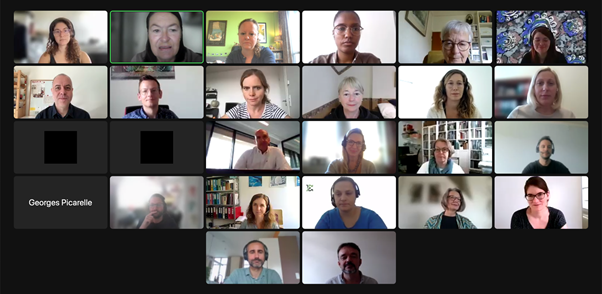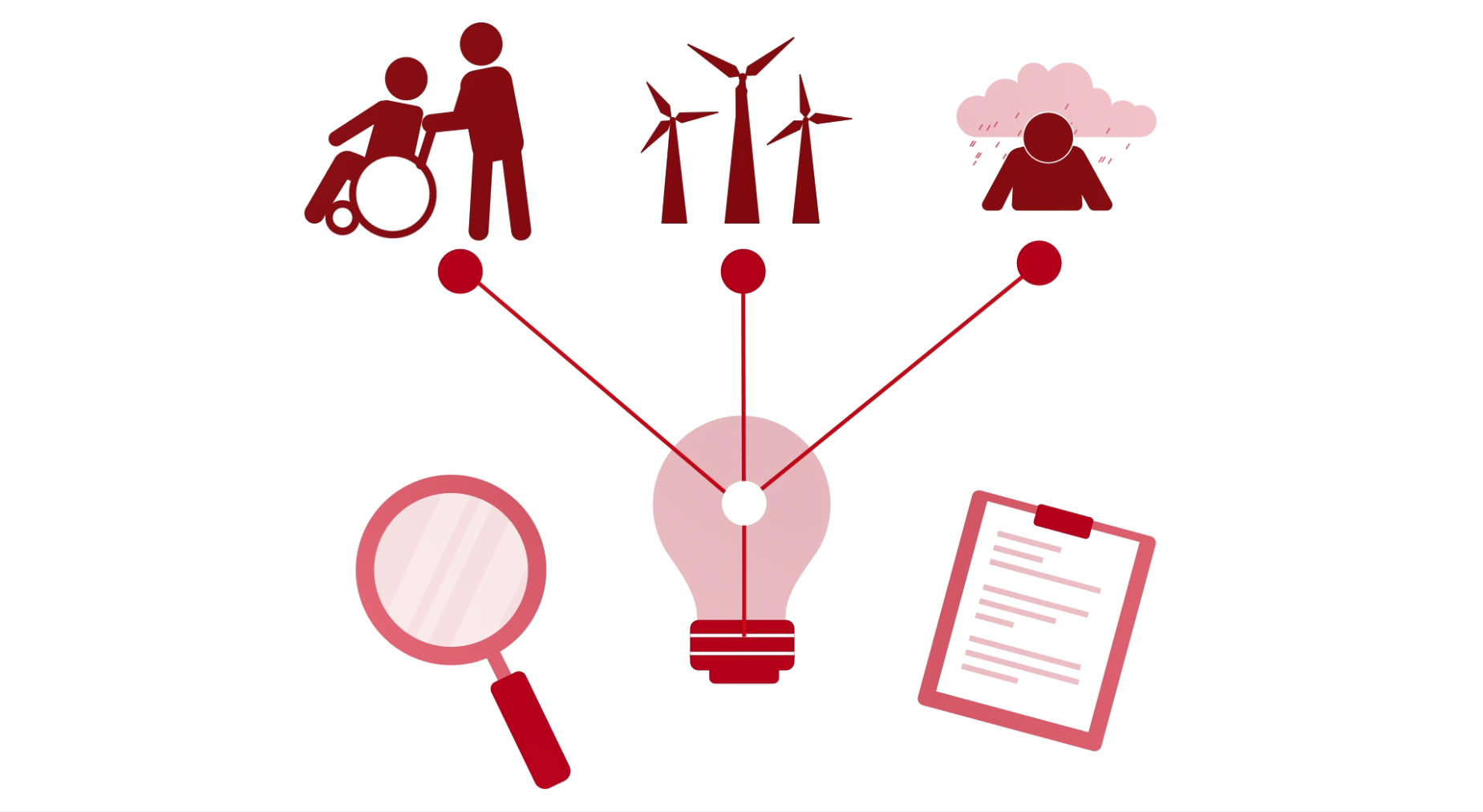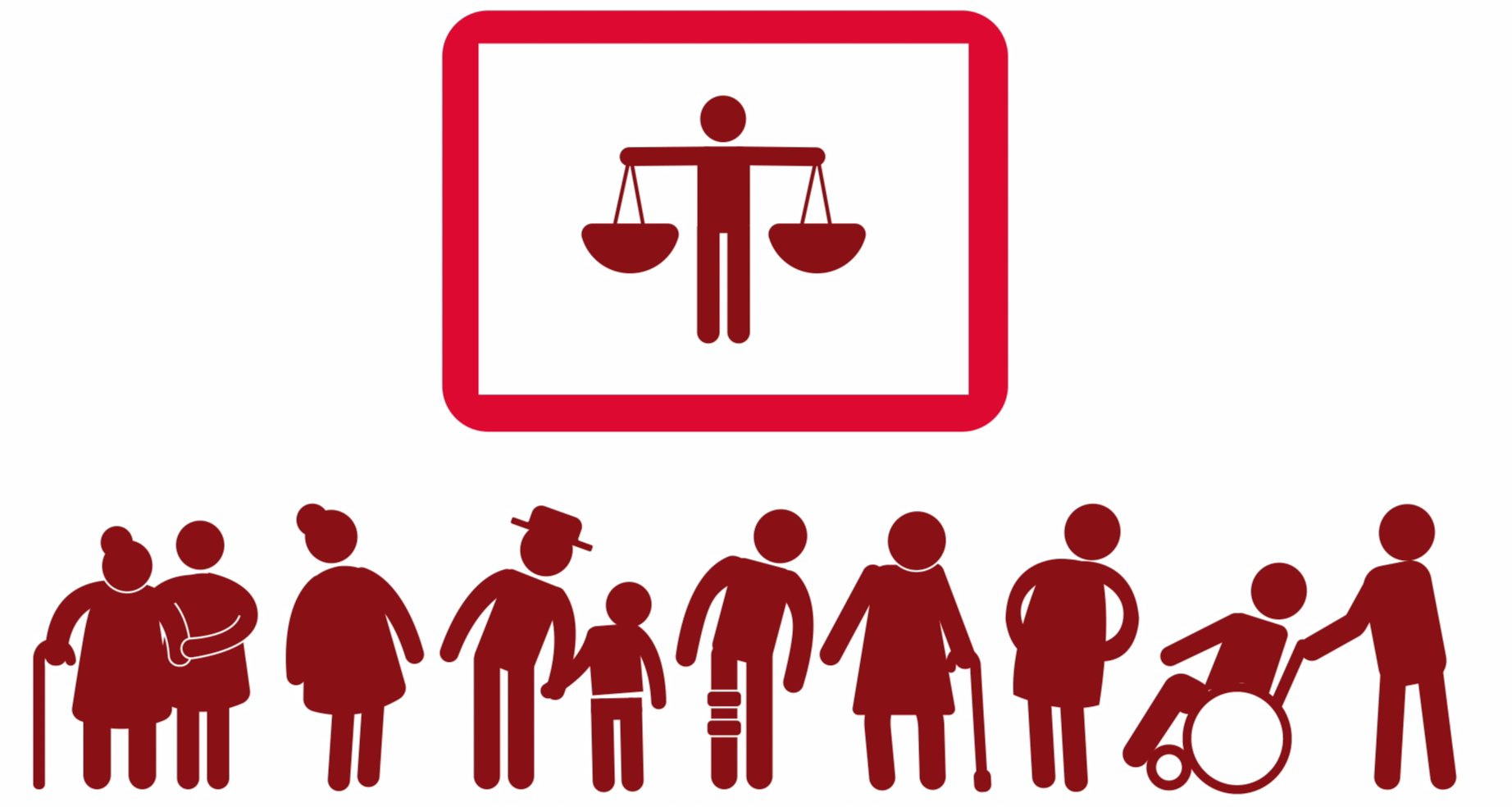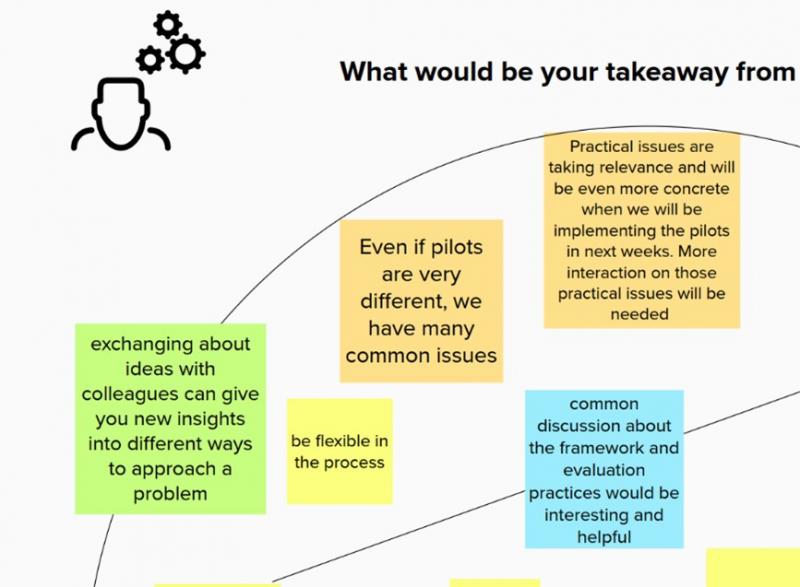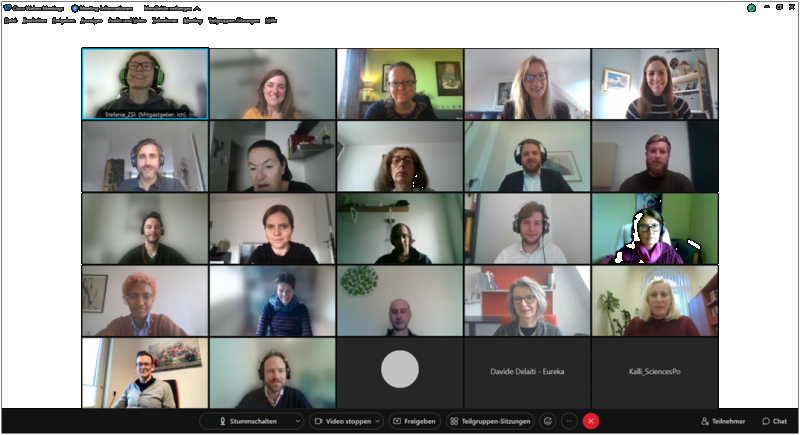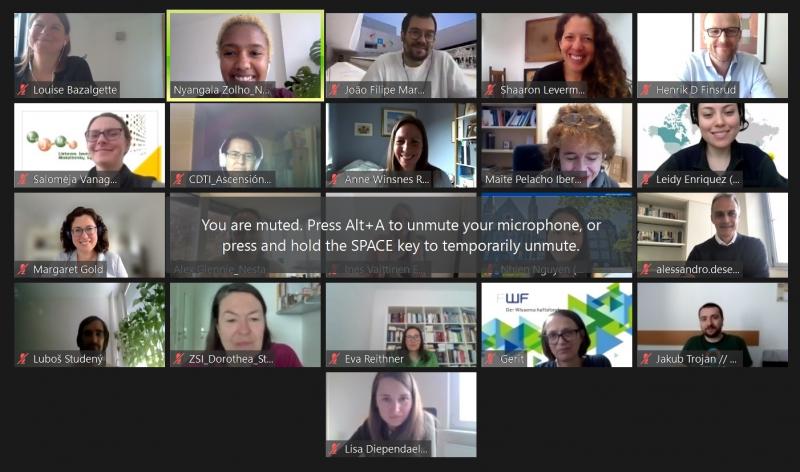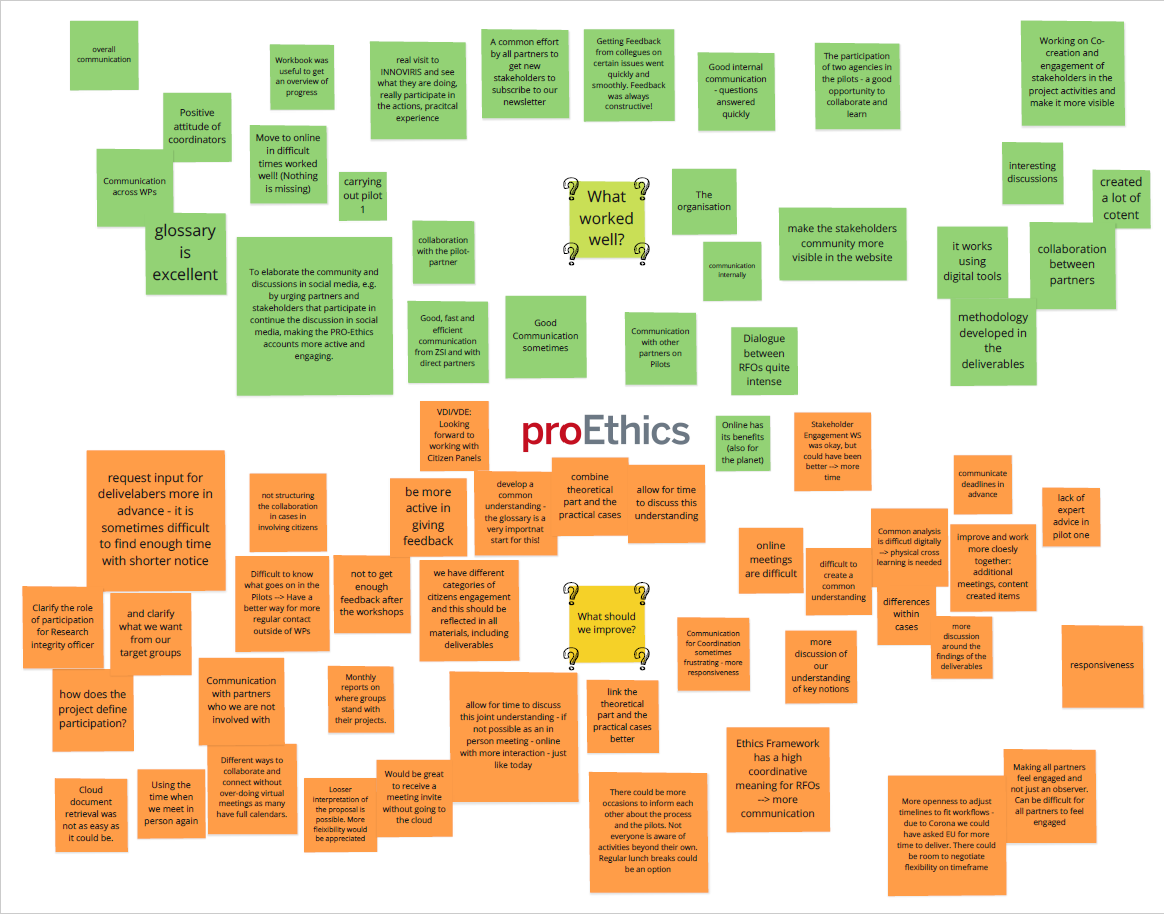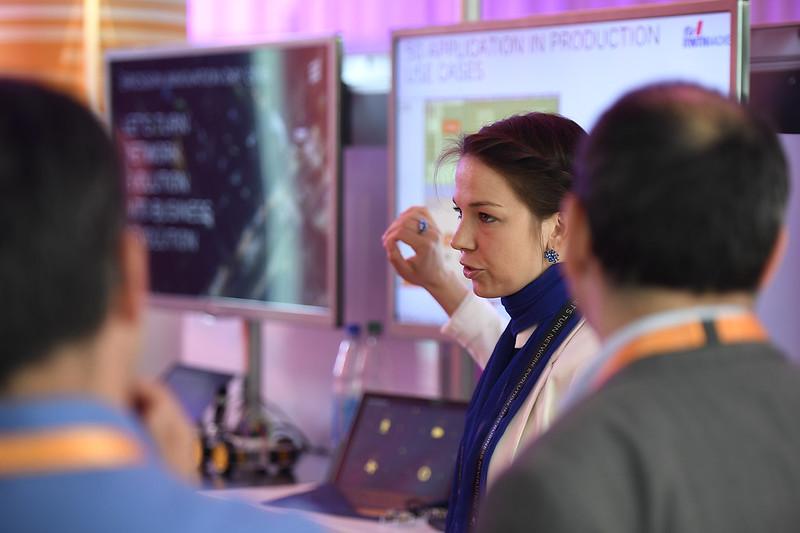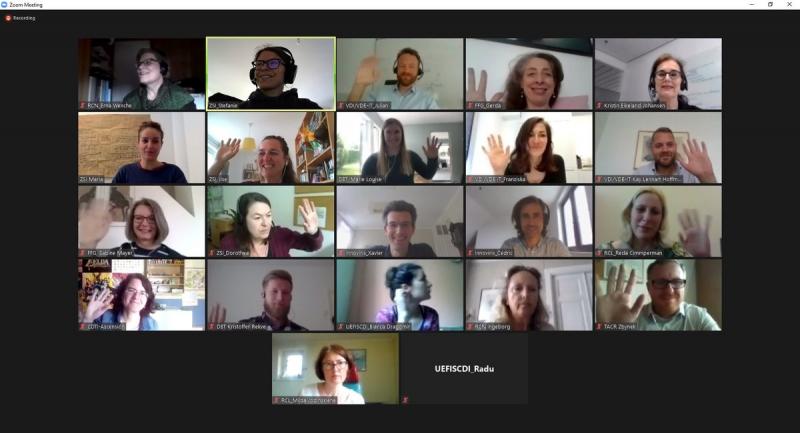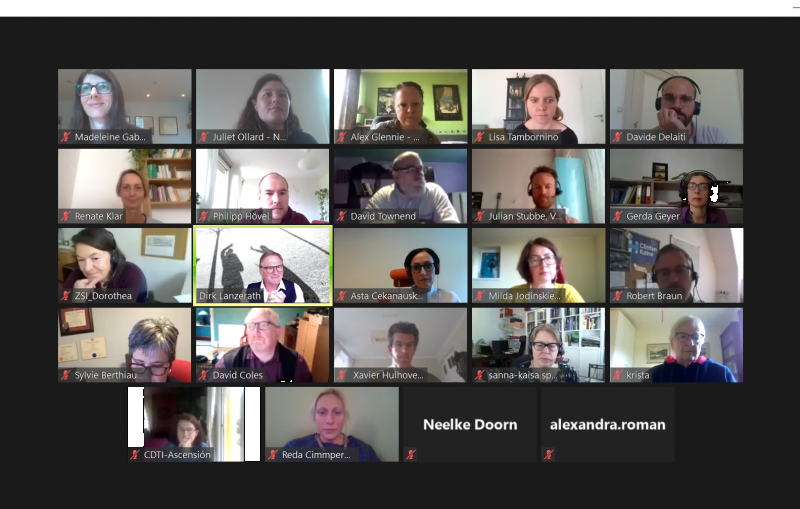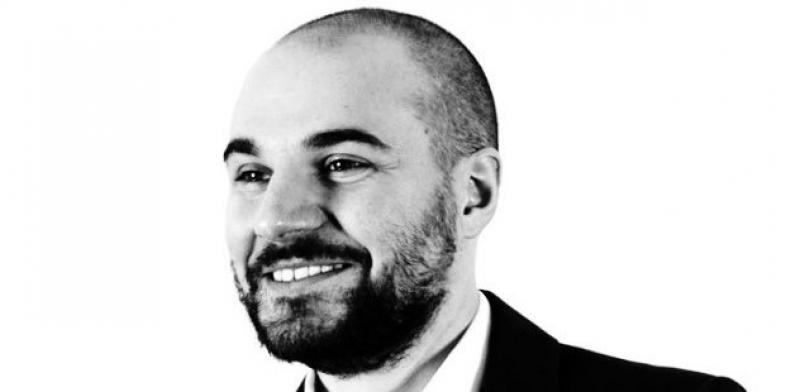
The future is now: Citizen participation in R&I
As part of the three-day conference ‘Connect. Collaborate. Create.’, held in Paris from 19-21 October 2023, the Innovation Growth Lab co-hosted a futures-oriented workshop aimed at identifying what decisions might need to be made today, in order to ensure the deepening of the participative pockets of R&I that exist today. This blog shares insights gathered from the workshop discussion with researchers, research funders and R&I practitioners present.
Guest commentary: Science Europe participates at the Connect.Collaborate.Create. Conference
Science Europe was delighted to be invited to participate in the ‘Connect. Collaborate. Create.’ (CCC) Conference to discuss stakeholder participation in research and research processes.
Guest commentary: Connect.Collaborate.Create. Conference
Amid the busy schedules, we all seem to have these days, the decision to accept the kind invitation from COESO and PRO-Ethics project coordinators to actively participate at their joint conference organized at Campus Condorcet in Paris, between 19-21 October was probably the best one I have made over the past months
Policymakers and practitioners meet in Vienna to discuss ethics, methods and aspirations for participation in R&I
On 29 September ZSI organised an event on the challenges, opportunities and ethical considerations surrounding the participation of stakeholders in all kinds of processes around research and innovation.
Newly published: Final version of the Ethics Framework & Guidelines in a new design
After an almost 4-year journey experimenting with participatory activities in research funding organisations and many iterations, our final version of the 'Ethics Framework & Guidelines' is now online in a new user-friendly design.
PILOT STORY: Making health research more inclusive to vulnerable groups
LBG Open Innovation in Science Center runs a pilot where the goal is to make health research more inclusive by involving marginalised and often excluded groups, like people without a home. The pilot has already provided important learnings.
SAVE THE DATE: PRO-Ethics Final Conference in Paris
To mark the end of a four year journey exploring the ethics of participation in research funding organisations, the PRO-Ethics project, coordinated by ZSI, is organising it's final conference in collaboration with the COESO Project.
The collaborative event takes place in October 19-21, 2023 in Paris, at Aubervilliers, Campus Condorcet.
GA in Vienna: Fine-tuning the Ethics Framework and impact pathways
On 1 and 2 June 2023, the PRO-Ethics consortium and members of the advisory board met in Vienna for their last physical general assembly meeting. The event focused on fine-tuning the design and contents of the Ethics Framework as well as the impact pathways and overall measures towards sustainability of the project undertaken by the consortium partners.
PRO-Ethics 3rd Cross-Learning Workshop
In the last cross-learning workshop, PRO-Ethics research funding partners (RFOs) were invited to discuss the outcomes, impacts, and learnings of their pilots. They jointly reflected on the experience of the Ethics Framework implementation in their pilot work, specifically reviewing the guidelines in detail, and discussed how to build impact pathways for the pilot work continuation.
What has PRO-Ethics learnt from engaging with research and innovation experts?
PRO-Ethics has entered its final year and one of our top priorities has been to get our draft ethics framework seen by experts who can help ensure our project has real-world impact. In January and March 2023, PRO-Ethics brought together research ethics and integrity experts and research and innovation organisations respectively to gather insights that could help to better shape our ethics guidelines.
Pilot Reflection Workshop in Brussels
In November 2022, the PRO-Ethics consortium met to exchange experiences, reflect on their pilot activities, and further develop our common ethics framework. As part of this, we carried out a series of interactive workshops, starting out with a synthesis workshop on pilot experiences aimed at discussing the findings and results of our participatory pilots.
PILOT STORY: Through Involve Hub gatherings, RCN received valuable input on how to facilitate more and ethically sound participation in R&I
The Research Council of Norway (RCN) has hosted three hub gatherings as its pilot in PRO-Ethics. Researchers and non-traditional stakeholders have come together to discuss ethics and participation processes, and given the Research Council much needed input on how to improve its own work with these issues.
Launch of our E-Consultation
PRO-Ethics is working on an ethics framework to help research funding organizations organize ethical stakeholder participation. With this consultation, we hope to receive input that helps us further improve the framework.
PILOT STORY: The Austrian Research Promotion Agency will inform a funding call based on citizens’ opinions
In June, PRO-Ethics' RFO partner FFG hosted a validation workshop as part of their multistep participatory approach. The ultimate aim of the pilot is to gather input to define topics for a funding call.
PILOT STORY: The strive for representativeness in civic participation for a small-scale project in Brussels-capital region
PRO-Ethics' RFO partner Innoviris picked a mixed-method approach to reach and involve citizens in prioritising the topics for a call for projects.
Winner of the PRO-Ethics Open Call
We are happy to announce the winner of our PRO-Ethics Open Call on Participatory Elements in Research and Innovation. Ludwig Boltzmann Gesellschaft – Open Innovation in Science Center (LBG OIS) will implement the project “Inclusion Health” to heighten their ability to engage highly disadvantaged social groups.
Three lessons on getting citizen participation right from research ethics and integrity bodies
Develop an adaptable framework that incorporates what already exist and take practical inspiration from citizen science and other public participation. Even though the barriers may be high, ethical participation will enrich research and innovation practices. These were the learnings from PRO-Ethics' workshop with research and integrity experts in September.
PILOT STORY: Involving agency’s internal stakeholders in the evaluation process
In June, PRO-Ethics' RFO partner CDTI hosted a workshop with three internal stakeholders to discuss their Neotec programme and its implementation context. The aim was to refine the stakeholder map and tune up the next steps of their pilot – evaluating the social impact of Neotec from a participative approach.
Policy Brief 2:
Learnings from RFO experiences with participatory pilots
The research funding organisations (RFOs) of PRO-Ethics are implementing ten pilots to explore participatory approaches in RFO activities. While adding value by obtaining relevant inputs from citizens and stakeholders not normally included in such processes, these pilots also enhance the RFOs' competence with participation processes and inform future activities. In this policy brief, we share important learnings from our pilot experiences that can benefit all research and innovation funding agencies with a wish to apply participatory methods.
First collaborative workshop with TAFTIE members
To foster collaboration between the PRO-Ethics consortium and the TAFTIE network, a series of two collaborative workshops was designed. These events are meant to introduce the ethics frameworks carried out by PRO-Ethics and to strengthen the ethical participative processes within research funding organisations (RFOs) across Europe.
Open Call for Proposals: Participatory Elements in Research and Innovation
PRO-Ethics is launching an Open Call for Proposals. All European RFOs are eligible to apply for funding of a maximum of €25,000. Through workshops, consultations, field visits, etc., the RFO should develop its competencies so that it can carry out participatory activities as part of its portfolio in the future.
read more »PILOT STORY: The Romanian National Agenda of Research is being enriched by listening to the citizens
In May, PRO-Ethics' RFO partner UEFISCDI hosted two world café events with 60 citizens to discuss two main topics based on the National Agenda of Research in Romania. The aim is to enrich the Research Strategic Agenda with the input gathered.
Workshop on participation and interaction: RECs, researchers & the public
Research ethics committees would benefit from advise on when and how to involve lay people in their work. They may also need advise on how to review the social value of research projects. These were some of the points made in a recent PRO-Ethics workshop.
New PRO-Ethics Animated Video
Have a look at our new animated video where we lay out the aims of our project!
Learnings from PRO-Ethics 2nd Cross-Learning Workshop
On the mornings of the 20 and 21 April 2022, the PRO-Ethics RFO partners gathered to discuss their initial work with participatory pilots. The main goals were to promote mutual exchange among the RFOs, by sharing each other’s challenges and lessons learned, to draw inspiration and new ideas for next steps, and to discuss practical and ethical dimensions of participation.
PILOT STORY: Discussing practical experiences with user involvement and ethics
Early 2022, the Research Council of Norway (RCN) invited a selection of inspiring projects within the health care sector to share their experiences with user involvement and ethical dilemmas. This was a first, small gathering in the Involve Hub RCN is undertaking as a pilot in PRO-Ethics.
PILOT STORY: An evaluation panel of informal caregivers
The German funding organisation VDI/VDE-IT is piloting a citizen panel of informal caregivers. The panel will contribute in the evaluation process of a new funding instrument, especially assessing what sort of interactive technologies that would support them in their roles as caregivers. We present some of their first learnings.
Third General Assembly Meeting
This year’s general assembly meeting marked the mid-point of the PRO-Ethics project. It was thus conceptualised both as a platform for stocktaking and for focusing the still somewhat diffuse moving parts of the project towards our shared goals, laying the groundwork for the years to come.
New ethics framework is available
The first version of the PRO-Ethics framework is now available. The aim is to ensure that citizen and stakeholder participation can be properly designed and implemented.
How can engagement be successful and ethical? Which ethical values and principles are most important?
PRO-Ethics has developed a first draft framework for ethical participation in research and innovation. After a succesful training session in June, PRO-Ethics' research funding organisations will now test the framework in real-life pilots.
How can we successfully involve citizens in research and innovation?
Citizens often experience research and innovation through end-products and services. But how can citizens successfully participate in different stages of research and innovation, including in the strategic development and evaluation processes of research and funding organisations? This continues to be a central question for the PRO-Ethics consortium.
Policy Brief 1:
Putting Citizens at the Centre of Research and Innovation
To meet societal challenges and secure a sustainable and resilient future, large scale innovation and a drive for improvement are needed. Public participation offers important benefits when developing new solutions. Preliminary results from PRO-Ethics emphasises the need for a common ethical foundation when involving citizens and stakeholders in innovation processes.
Learnings from one year of PRO-Ethics
How can research funding organisations (RFOs) involve citizens in ethically sound ways, to allow for mutually enriching processes and more sustainable outcomes of research and innovation endeavours? Throughout 2020, the RFO partners of PRO-Ethics spent considerable time sharing and exchanging their experiences from four participatory pilots of our “pilot phase I”. We are excited to share our learnings from one year of PRO-Ethics.
Considering participation across research and innovation will require sufficient buy-in
Gathering sufficient buy-in to ensure participation is considered across research and innovation projects continues to be a major barrier for research funding organisations. An ethical framework to guide stakeholder participation would be useful for organisations needing to demonstrate the value of involving citizens and end-users in innovation processes.
Ethical reviews in evaluation procedures boosts quality and trust
A new report on the Eurostars funding programme shows that including an ethical review in the evaluation process improves the project quality and makes decision-makers more confident in putting money into the programme.
Second General Assembly Meeting
In early December 2020, all partners of the PRO-Ethics project met online for the second general assembly meeting. This event also marked the first official meeting of the consortium with the PRO-Ethics Advisory Board.
A long way to go on citizen involvement
Citizens and end-users are more underrepresentated than expected in participatory processes, shows new PRO-Ethics report.
Results of Workshop 1 with Ethics Committees and Research Integrity Bodies
Effective stakeholder engagement is essential if PRO-Ethics is to have lasting, sustainable impact. D4.3 describes the results of PRO-Ethics’ initial steps to engage a key set of stakeholders, namely ethics committees and research integrity bodies. The document presents findings from a set of interviews and a workshop conducted between July and September 2020. The interviews and the workshop generated a rich set of ideas and questions to be addressed within PRO-Ethics, as well as important gaps where PRO-Ethics can make a novel contribution to the field of citizen participation in research and innovation activities.
How can IT tools support participation in a responsible way?
While the use of IT tools enables new forms of participation in research and innovation processes, pitfalls are definitely also present. In a recent workshop, PRO-Ethics partners discussed how to avoid deepening the "digital divide" along with other ethical dilemmas.
What can PRO-Ethics learn from research ethics and integrity experts?
The fields of research ethics and integrity have significant expertise in some forms of public participation in research. Research ethics committees, for example, oversee the participation of humans as research subjects, particularly in the biomedical sciences. In a recent workshop, PRO-Ethics RFOs and research ethics and integrity experts gathered to discuss what the project can learn from their fields of expertise.
The ethics review under the magnifying glass
Eureka offered to be a case study in the PRO-Ethics project because of its expertise in managing and handling the “ethics review” for its major funding programme: Eurostars. The ethics review is a unique tool ensuring that project proposals funded under the Eurostars programme are compliant with main ethical principles and international/EU and national legislation. In the context of PRO-Ethics, the ethics review plays an important role, as it offers a special focus on the ethical participation of research participants (adults, children, vulnerable populations, patients, etc.) in funded research projects, states Davide Delaiti, process leader for ethics in Eureka.
PRO-Ethics will develop a best practise to ethically engage citizens
"Through PRO-Ethics, we try to find solutions to maximise the benefits and minimise the risks of participatory approaches," says project coordinator Dorothea Sturn.
Initiation of cross-learning efforts
Cross-learning is an important cornerstone of PRO-Ethics. It aims to release the full potential of the pilot projects through the mutual exchange of experiences and learnings by the participating Research Funding Organisations (RFOs). The first steps of this process were taken earlier this year with the first of three cross-learning workshops, which focused on the ethical practices and challenges of the participating RFOs.
PRO-Ethics Theoretical Framework:
Ethics of Participation in European Research and Innovation
In the course of PRO-Ethics’ exploration of participatory practices in innovation processes, the Theoretical framework (D1.2) is the first publicly disseminated systemic study of PRO-Ethics, setting the ground of the PRO-Ethics project’s rationale. This study offers a critical review of literature and practices related to ethics and participatory practices in innovation, defining the framing of ethics of participation applied to innovation processes.
Short form article
Publication of D1.2 Theoretical framework
In the course of PRO-Ethics’ exploration of participatory practices in innovation processes, the Theoretical framework (D1.2) is the first publicly disseminated systemic study of PRO-Ethics, setting the ground of the PRO-Ethics project’s rationale. This study offers a critical review of literature and practices related to ethics and participatory practices in innovation, defining the framing of ethics of participation applied to innovation processes.
Long form article
Newsletter
We are committed to ensuring the privacy of all our subscribers. We collect and retain only such personal information as you choose to provide us. All such information is stored securely and will not be made public, sold, rented or likewise distributed. Please read our full Privacy Policy]. You can withdraw your agreement any time via email to contact@pro-ethics.eu, or submit questions regarding your privacy. You can unsubscribe at any time by clicking the link in the footer of our emails. We use Mailchimp as our marketing platform. By clicking above to subscribe, you acknowledge that your information will be transferred to Mailchimp for processing. Learn more about Mailchimp’s privacy practices here.



